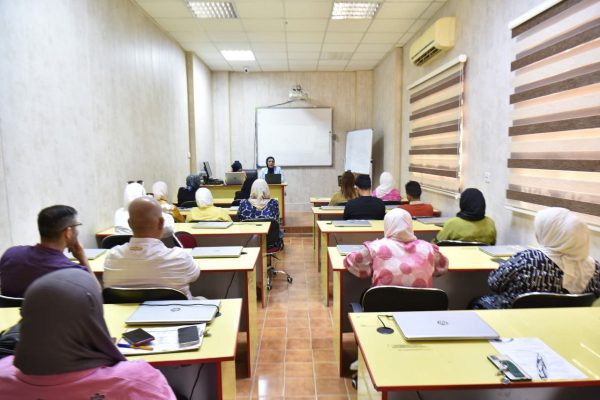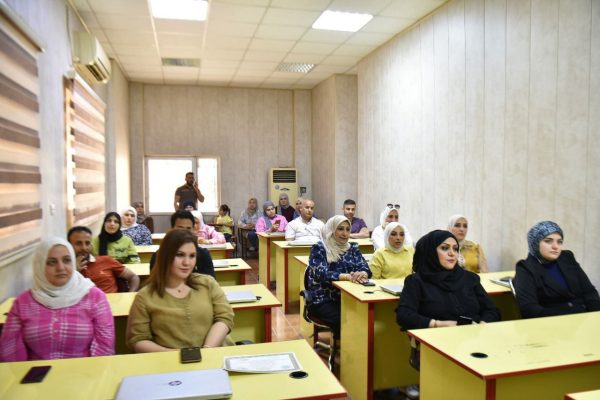Under the patronage of Prof. Dr. Sameera Naji Khdim, Dean of the College of Science for Women, the Media and Government Communication Division, in cooperation with the Continuing Education Unit, organized a workshop entitled “Introducing the Culture of Mental Health.” The workshop was presented by Ms. Alaa Hussein Mohammed and Ms. Huda Sahab Matar.
The workshop aimed to shed light on the concept of mental health as a cornerstone for a balanced human life and an individual’s ability to cope with life’s pressures and face daily challenges with a high degree of awareness, psychological resilience, and emotional flexibility. It provided a detailed explanation of mental health from the perspective of modern psychology, emphasizing the link between an individual’s internal balance and their capacity to build healthy relationships, make sound decisions, and effectively fulfill social and professional roles.
The workshop also addressed the importance of psychological prevention and strategies for promoting mental well-being from early stages of life—beginning with the family, through the school environment, and into the workplace and broader society. The presenters discussed a range of prevalent psychological challenges such as anxiety disorders, depression, burnout, and academic stress. They outlined common causes of these conditions and proposed scientific and practical approaches for preventing or mitigating them, including the development of healthy psychological habits and effective coping skills.
Furthermore, the workshop emphasized the strong correlation between mental health and overall quality of life, affirming that individuals with stable mental health are more productive, capable of learning and innovation, and more likely to contribute positively to societal development through balanced behavior and constructive social interaction.
The session also included practical training on stress management, positive thinking, and achieving work-life balance, all within a program specifically designed to provide direct benefit to attendees. Organizers highlighted the importance of breaking the social stigma associated with seeking psychological support and advocated for integrating mental care as a fundamental component of comprehensive healthcare.
The workshop witnessed wide participation and active engagement, with numerous questions and discussions reflecting growing interest in the field of mental health. Attendees affirmed the significance of continuing such activities due to their role in enhancing community awareness and providing a platform for open dialogue and psychological support. The workshop concluded with a recommendation to integrate mental health concepts into educational curricula and awareness programs across various institutions to ensure they reach all segments of society.











